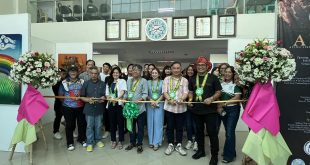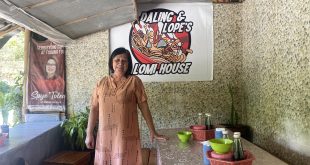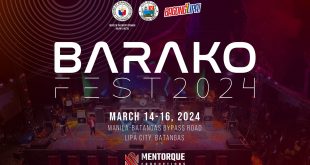 Access to safe drinking water is a fundamental human need and therefore, a basic right. Contaminated water jeopardizes both the physical and social health of all people and it is an affront to human dignity (WHO, 2003).
Access to safe drinking water is a fundamental human need and therefore, a basic right. Contaminated water jeopardizes both the physical and social health of all people and it is an affront to human dignity (WHO, 2003).
In one of my discussions yesterday in my Intro to Development Communication class, I mentioned about this drinking water problem encountered by Africans for decades now — that only forty six percent of the total population of Africa has access to safe drinking water which means that more than the half of the entire African population is deprived of safe and potable water. Sad reality right?
I also shared this even pathetic scenario in Asia in which seven hundred five million people have no access to safe drinking water, while 1.9 billion or 80 percent of the population has no access to sanitation not including the Philippines with more than 10 million Filipinos with no access to safe drinking water or 242 waterless communities outside Metro Manila.”
With all these screaming figures of people with no access to safe drinking water, I told my students that we are so lucky to have access to class “A” water. Lucky to the extent that we use potable water for washing our clothes, dishes, cars, cleaning our bathrooms and even on watering our plants at home.
Meanwhile, I probe into this problem and gladly I found out in the recent report from UN, that most Filipinos will have access to safe drinking water by 2015, the cut-off year set by the 2000 Millenium Declaration sponsored by the United Nations (UN) to alleviate poverty.
The report also stated that the country has a high probability of halving the population without access to safe drinking water. Data from the National Statistics Office showed that 80.2 percent of households in 2004 already had access to safe drinking water. To reach the country’s MDG commitment, the number of households should go up to at least 86.8 percent.
The Philippines is one of 189 country-signatories of the Millenium Declaration, which then came up with eight time-bound specific targets called Millenium Development Goals (MDG). Safe drinking water, one of 48 MDG indicators, is also part of the 10-point agenda set by President Macapagal-Arroyo in 2004 to integrate MDG with the country’s development plans.
To help the country meet its MDG target, Spain gave the Philippines early this year a US$5.3-million or P258-million grant to ensure the sustainable delivery of water to 122,000 households in 36 depressed communities in Cagayan, Bicol, and some areas of Mindanao. The Spanish grant was coursed through UNDP.
We are so blessed to have received help from other countries. I am really keeping my hopes high that this fund will be used accordingly for these water supply related problems in the country. Meanwhile, along with all the current political, social and environmental problems that our country is facing, let us all, as concerned individuals, do our contribution (even in little ways) in conserving and maintaining clean and safe water for all and for the generations to come.
By the way, regarding the question “Will the Philippines have safe drinking water by 2015?” I guess the answer is really all up to us.
Para sa mga kapwa ko Batangueno at Pilipino, pagtulungtulungan nating maging maganda, masaya at ligtas ang mundo para sa mga susunod pang salinlahi.
[tags]water supply, problems, clean water, drinking water, potable, MDG, UN, UNDP, President Gloria Macapagal Arroyo, water, conservation, problems, Africa, Asia, Philippines, batangas[/tags] WOWBatangas.com Your Source of Great News and Stories from the Province of Batangas, Philippines
WOWBatangas.com Your Source of Great News and Stories from the Province of Batangas, Philippines




